She first began working at St. Stephens selling bingo cards. Through school she began working at Franklins Ready to Wear under an occupational program. She worked at Handy Andy and then Piggly Wiggly before she married at the age of 19 on May 12, 1957 to Victor Arambula Rodriguez. After their Corpus Christi honeymoon, they moved to Lawton, Oklahoma where she had her first miscarriage and two beautiful daughters Maria de Jesus Vasquez Rodriguez and Elizabeth Vasquez Rodriguez. Moving around a bit in 1962 they ended up stationed in Germany till 1964. The family returned to San Antonio till 1966, where Rosa took a job at Tobin Aerial Mapping Company, while her husband was called to Vietnam. The year he returned from Vietnam they were subsequently stationed at Fort Rucker Alambama, where they lived for two years before he was called back to Vietnam. Rosa and her daughters moved back to San Antonio where she returned to work at Tobin's. When he returned in 1970 they were stationed once again in Lawton, Oklahoma where she took up the job of a Nutritional Aid at the University of Oklahoma. Grampa retired in 1975 from the army and two years later they made their last move back to San Antonio where Rosa resumed work at Tobin's.
In 1979 her first grandchild Luke Anthony Piña was born. After which she traveled to see her grandchildren wherever her daughter Maria was stationed with her husband. Since then she has lived in San Antonio, helping her youngest daughter raise three grandchildren. She replaced both her knees in 2004 and 2005 and her first great grandchild was born September 10th 2007 (my birthday!). She has lived all her life as a devout Catholic, enjoying crafts, sewing, and ceramics as life long personal hobbies. Today she lives with her youngest daughter Elizabeth, spending a couple months a year with her other daughter Maria and her family in Seattle, Washington.
TRANSCRIPTION
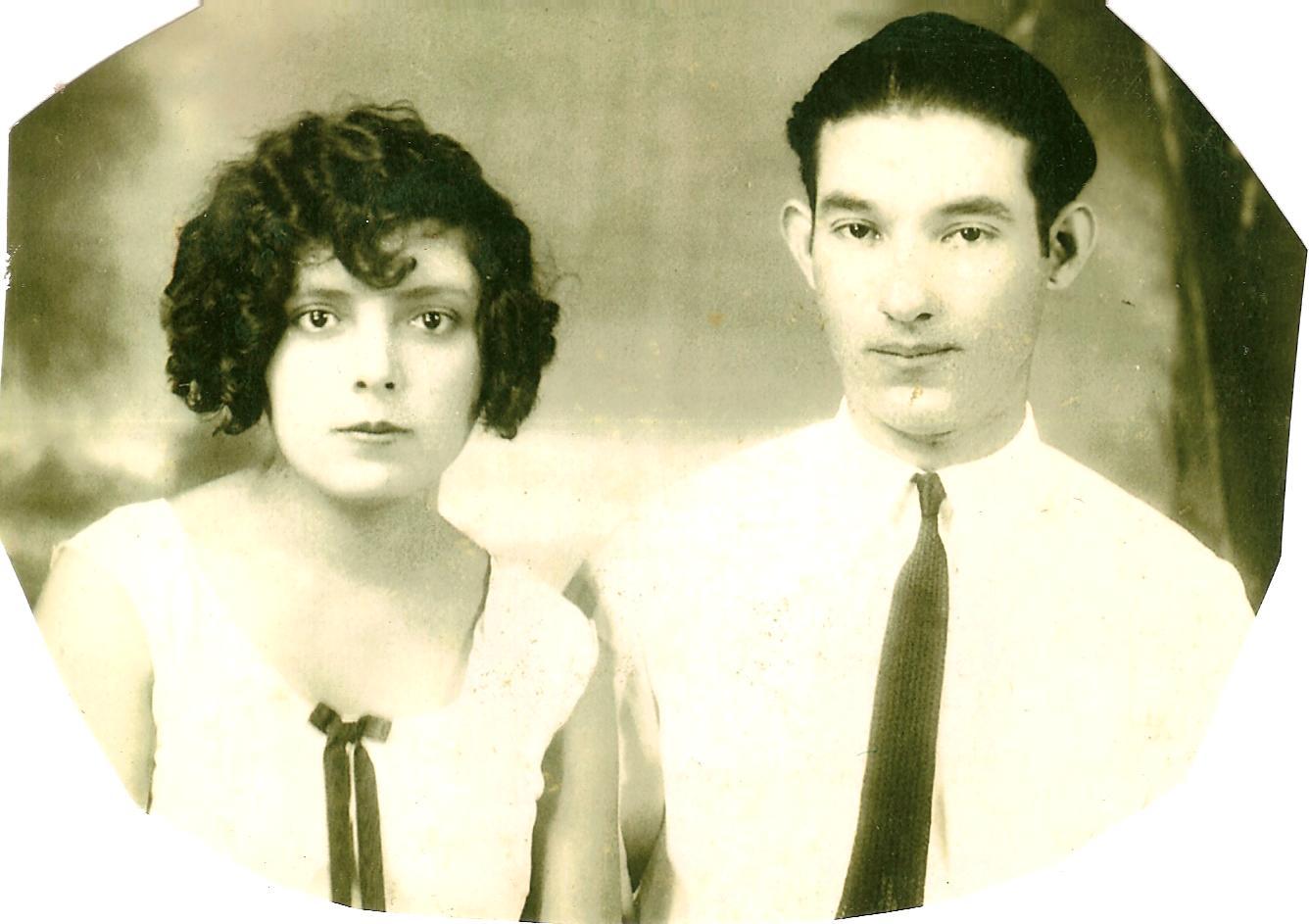
Where were you born?
I was born in San Antonio, Texas in July 27 1937 at 1110 Palo Verde.
Where was that?
That was at home. It was a little neighborhood that doesn't exist anymore by Laredo St. and … Palo Verde.
How was it that you came to be born at home?
People at that time had all their children at home by midwife, so my parents were already having their fifth, I was their fifth child. And we had all been born at home; my mom and my dad were always there when we were born.
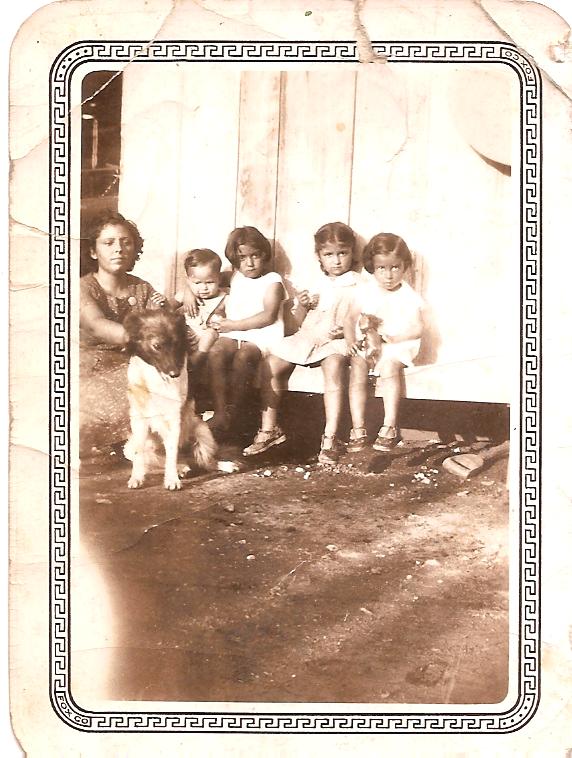
What are you memories of moving to public housing?
My memories to moving to public housing was the vastness of the house. We left Palo Verde which consisted of one big room and a small kitchen in the back, a toilet but outside the house not in the house. That was the thing that really impressed me, was that when we moved to public housing we got a four bedroom house with living room dining room and kitchen and a bathroom with everything; bathtub, sink and toilet inside. It was a two story house.
Why did you leave?
We left because every time my dad got a raise at work the rent for the public housing would go up to, also there started to be a little more violence then what there was when we moved in. We lived there seven years, and my father didn't want us to be exposed to that.
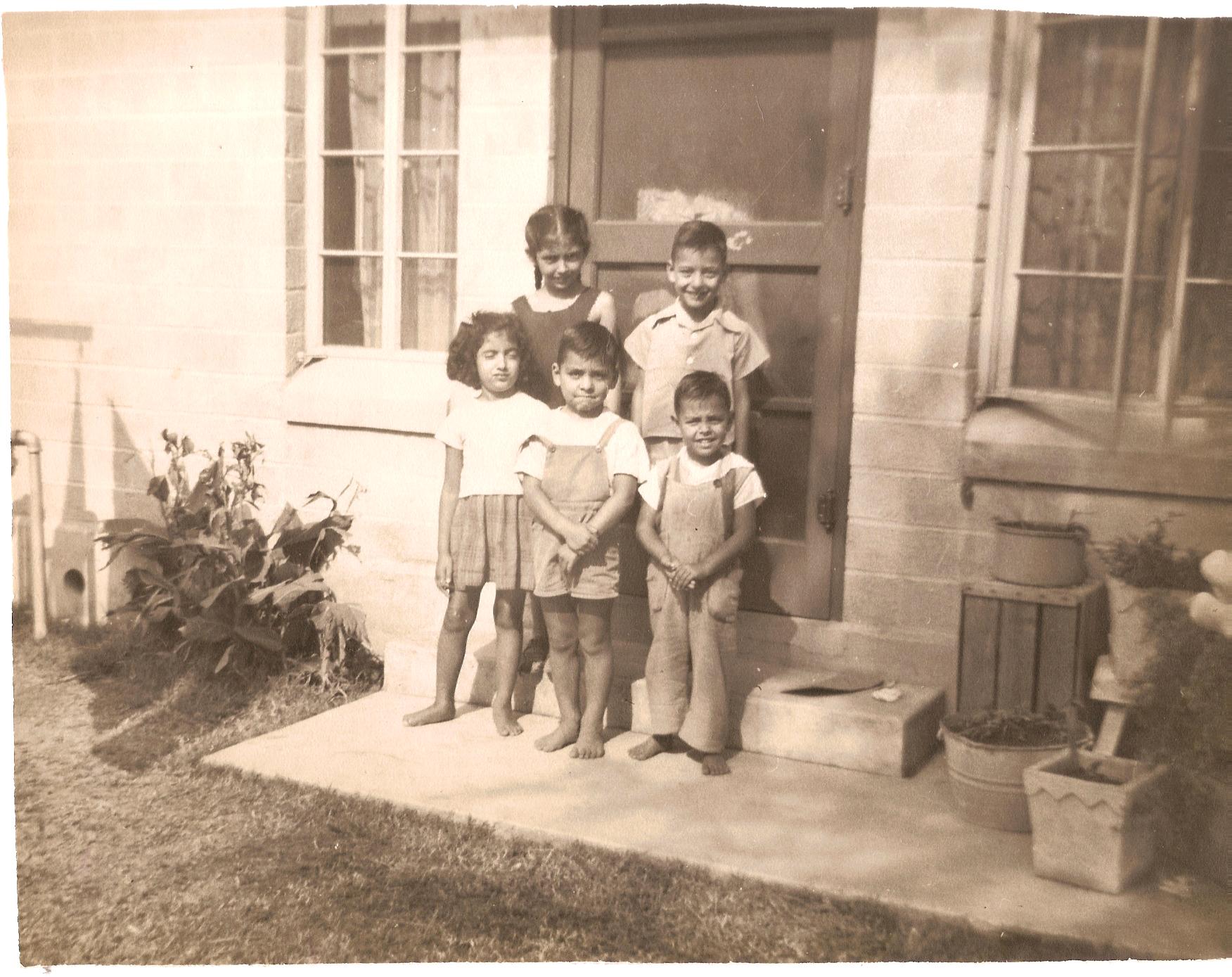
Could you describe the neighborhood and house where you grew up?
When we moved out of public housing my dad bought a lot, and it was actually out in the country. There was a farm that was owned by Brady and he still had cattle and he was still planting. Right behind the house we moved into there was still a pond and it was just nothing there, just for a few houses. The ranch that the man owned was fenced in by like a 8ft fence and barbwire at the top. So it was really out in the country which today it's in the middle of town.
Where is it?
This is at the corner of Brady and Zarzamora.
...and the house itself, can you tell me about the house?
The house, my dad didn't believe in getting into debt. My dad went through the depression and he knew how people had to live within their means. He always used to say you can't spend money that you haven't earned. So when we moved there he just had a shell made. The outside walls, it didn't have any partitions except the bathroom was how do you say… covered. The rest of the house was like a big dance hall. When he had enough money then he had the partitions made and that was four rooms. We used one for the living room, one for the kitchen, and then a bedroom for my father and my mother and my little brother that was still small, and us girls - all five girls slept in the other bedroom in two double beds. When we first moved there the only thing we had was sewers and we brought water from one of the neighbors, we didn't have gas and we didn't have electricity so for a couple of years we made it without electricity. Eventually, little by little they started, other people started to build and that's when they brought in the gas lines and electricity.
So ya'll were using like a wood burning stove?
It was a kerosene stove, and we had what we called ice box, because the ice man would come every three days and bring a block of ice to put in our little ice box and the stove was uh petroleum, I guess is what they used and the kitchen was so small we had to eat in shifts, three at a time…
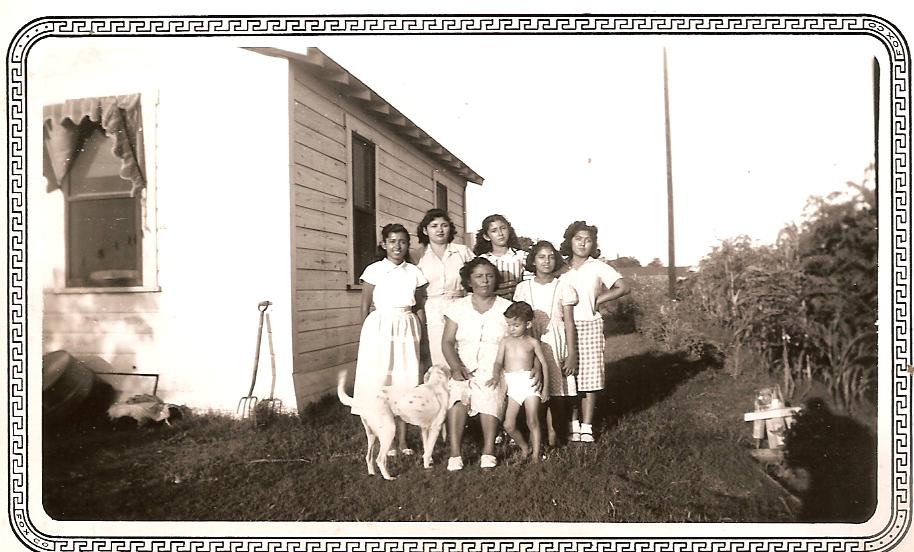
What can you tell me about illness and medicine in your youth?
Well, what I remember about those times was that if one of us was sick, a fever cold and all that, my dad had a drug store, a pharmacy where he would go and he would talk to the pharmacist and he would mix whatever he thought would help for the symptoms. And of course he always would tell him if there not felling any better in three days then take 'em to see the doctor. But the first thing they would do would be the pharmacist, besides home remedies, hot teas, you know, but the doctor was the last resort.
When did you begin school?
I began school when we were living in public housing and it was just two blocks away from my house. I did go to kindergarten while we were in public housing and when I started school it was like we went to school and we got off to come home and have lunch and then we would go back to school and it was uh, a small school for the area there, and I went there till fourth grade.
Did you walk to school?
Yes, we walked to school. No, the parents didn't worry about walking us to school, you could see all the little groups of children walking together to school
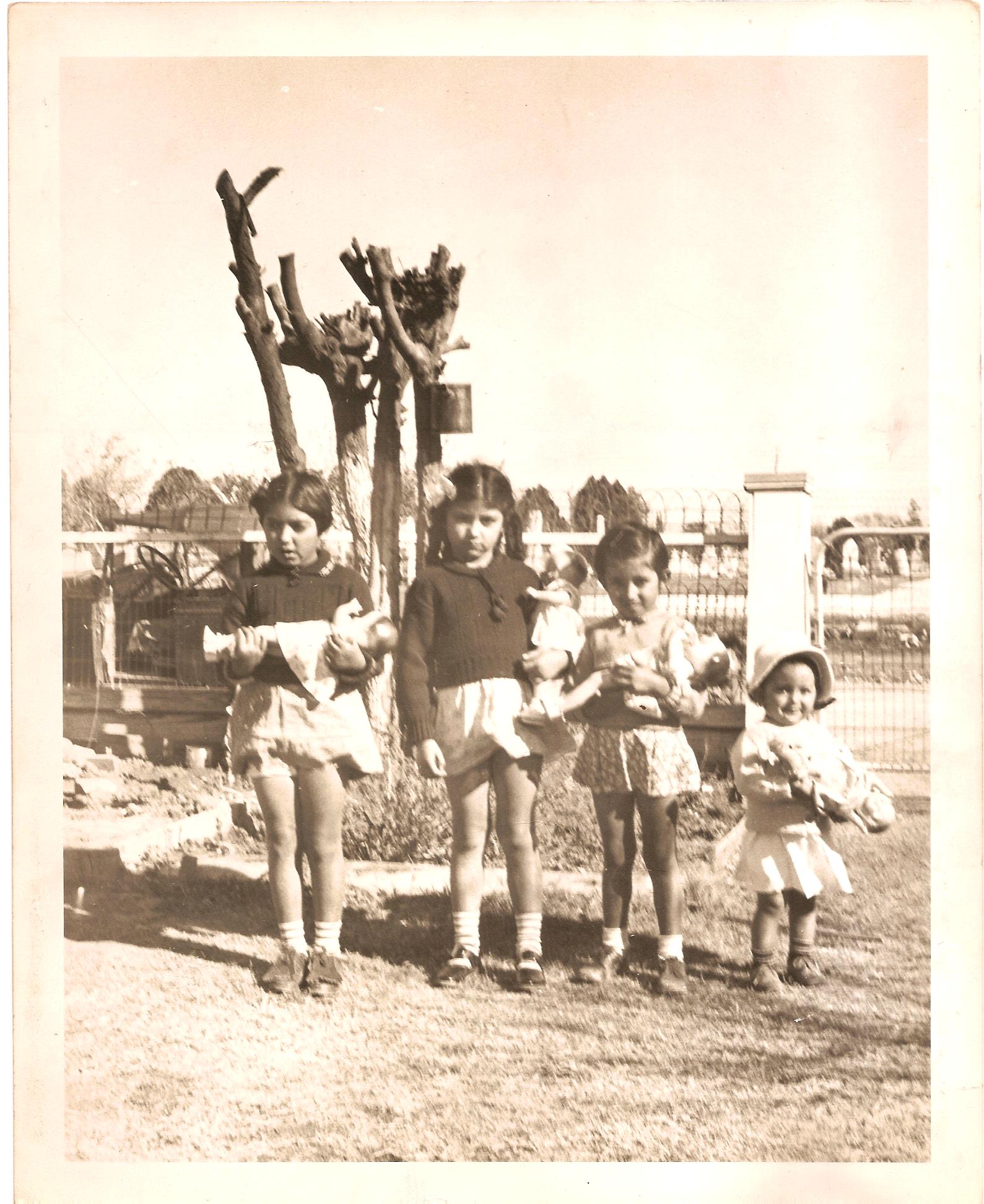
What were the classes you took in High school?
In high school I started in one high school, at Brack. But that was a school that prepared you for college, and when I realized that then I changed to fox tech which was an occupational school and I went into retail. So my two last years in high school I went to school half a day and worked half a day in one of the ladies ready to wear stores downtown.
Was that a program with the school?
That was a program with the school, the school would go and talk to my supervisors and ask if, you know how I was doing, if I missed, if I was late. It was in co ordinance with the school.
Why did you choose to go to occupational school instead of college prep?
Because my oldest sister had gone to Brack and been prepared for college but when my parents wanted to send her to college there was no way they could afford to send her, so all of that training for college really didn't help her for anything. It took her a while to find a job because everywhere she went to look for work they wanted for her to have experience and she didn't have it because she was just getting out of school.
What were the cultural differences you experienced throughout school?
Actually none because we were all in the same, same boat; we were all Mexican Americans we all had our parents that allot of them didn't speak English, some did and we didn't have a big mixture of anglo and black.
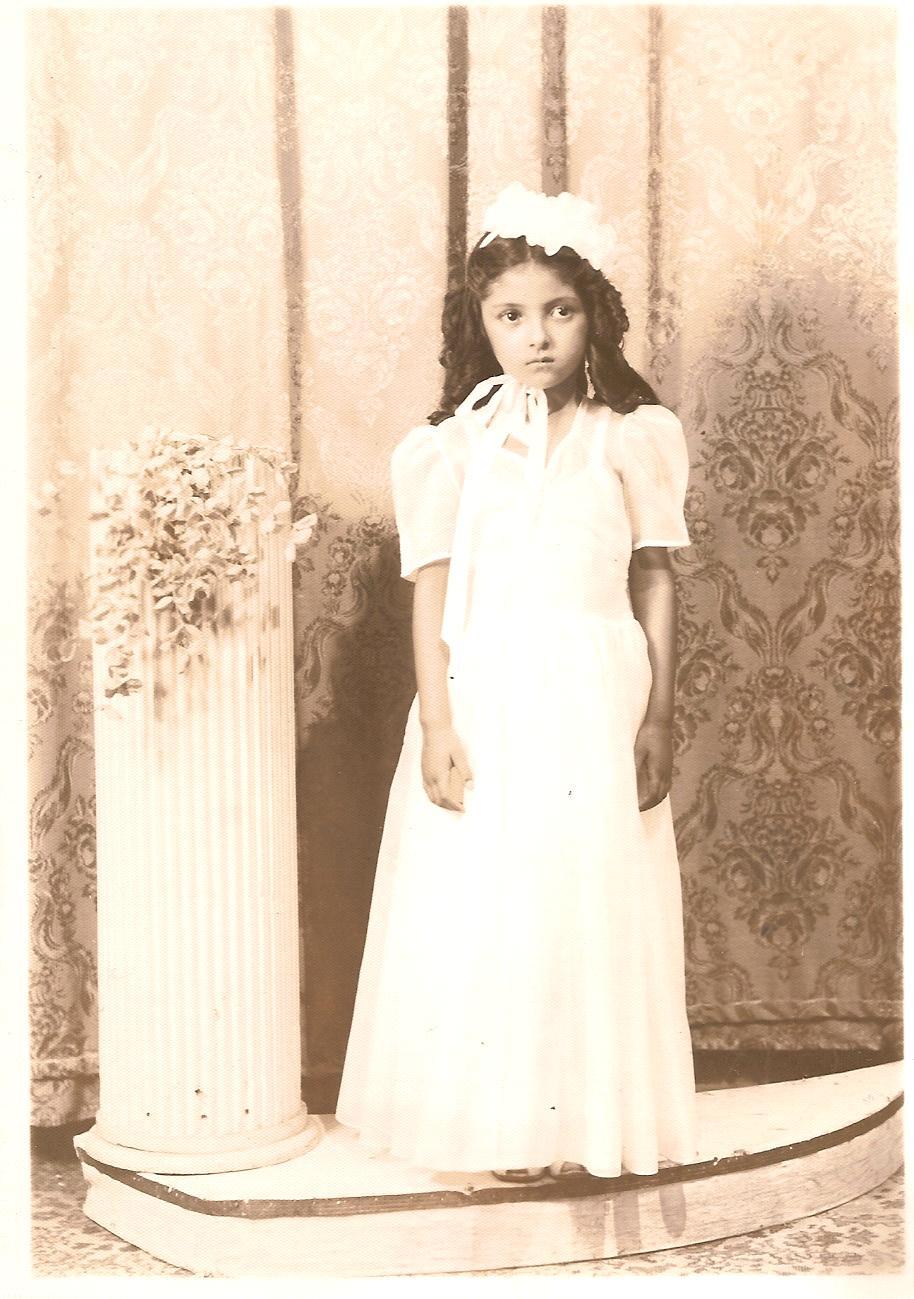
What was San Antonio like while you were growing up?
Peaceful, safe. We would start going downtown on the bus and parents didn't worry about doing these things. When I was going to fox tech I had to take the bus to school every day, when I was gong to junior school we walked. It was pretty far but nobody really had money to afford the kids to take the bus so we just walked in droves. But in high school it was too far for us to walk so we took the bus.
Can you tell me about going to different Drive In's around town?
Yes, we were fortunate because we had one English drive in close to our house and close to the house we also had a drive in that showed Mexican movies. And well it was just an exciting thing. You have to remember we didn't' have TV's we didn't sit out and watch TV all the time. And to got the movies downtown you needed a little bit more money because you had to pay for the bus you had to pay for the movie and at the drive in we all piled up in the car and it was like a dollar a car load and we usually took our own snacks, we made our own popcorn took candies and all that. And if you didn't want to sit in the car, if you wanted to go meet a boyfriend they had some seats in the front of the drive in where you could see and sit. Tia Margaret was the one that would take us all the time, and my dad would take my mom that didn't speak English and my older sister that didn't speak English he would take her to see the Mexican movies and of course if they let us we'd go to.
What was the music and art like of that time?
Music was the radio, and it was my mother would always have the station on the one Spanish station that there was, not that I remember. But it wasn't like today that everyone has their own radio, you were lucky if you had a radio for the whole family. But I remember that in the evenings my sisters and I would listen to… what would you call them? Their not called soap operas, they were like soap operas on the radio, and they wouldn't have em everyday, they would have different ones different days once a week. There was like the Dark Shadow and some of the classics that they would have. And they would make all the different noises the squeaking doors the heels going you know, and we would sit there and we would love it. We spent allot of time outside, in the evenings. Like in summer my mother would get us up early in the morning like if we were going to school and we'd have breakfast, go outside and play and around 11:30 we'd have to come in because it was already too hot. The older girls were being taught how to crochet, how to embroider how to sew and us kids would find something to do, play checkers play cards and then in the evenings after supper we'd all be outside too. My mother would be watering the yard and we would be playing. And people visited a lot more. They would congregate at one of the house and just sit around and how do you say platicar? Talk…
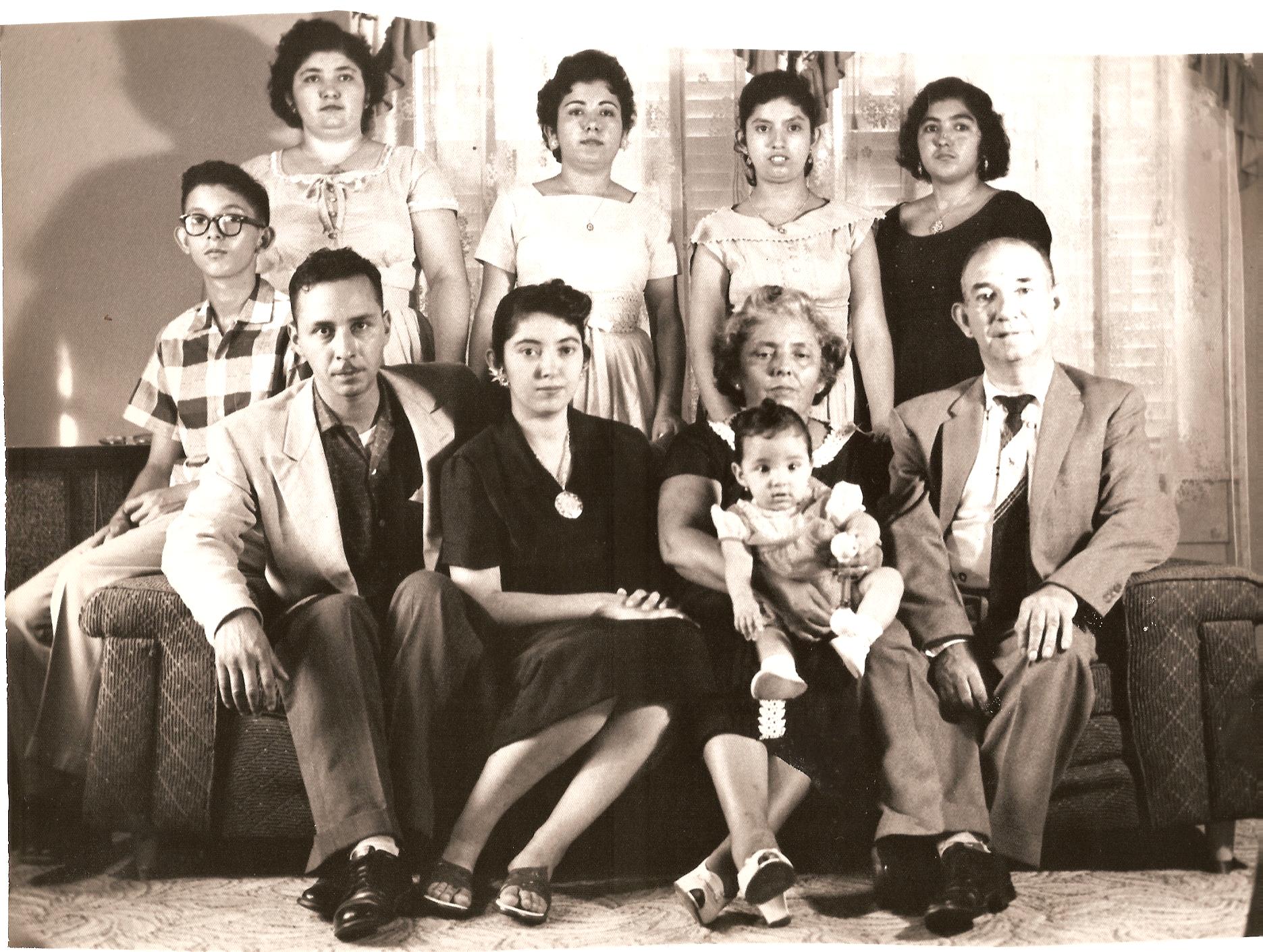
Can you tell me about the birth and circumstances of your first child?
Well I have to go back to the fact that I had lost my one baby before my first born, and I had come to San Antonio for a visit. At that time we were living in Lawton Oklahoma and I saw a doctor here that gave me some medications to try and prevent another miscarriage but everything went fine until it was getting close for the birth and they kept wanting to say that the baby was developed enough to be nine months in September when it was due to be born, but I knew that that's the amount of time I had of being pregnant. So when I went into labor my water broke in the middle of the night and I got to the hospital the doctors couldn't hear a heartbeat. So they didn't know what to expect, so when the time came them put me completely under, how do you say it, anesthesia. And I don't' remember anything about my first child's birth except that my husband says that when she was born, she was born naturally, you know no cesarean they were running around trying to put her in an incubator because they weren't prepared they thought the baby wasn't gonna be alive, and she only weighed 3 lbs 14 oz. and thank goodness that that baby was as healthy as could be, she was tiny real tiny but within a year she had caught up to her normal size which if it would have been a premi like they wanted to say she was it would have taken her a long time to catch up to her normal growth. So by the time she was a year old she was just a… cutie.
...and what about Mexico?
Well to México was after she was born and they told us that we couldn't' bring her home till she weighed 5lbs 2 oz's. So when she got to 5lbs 2ozs, which was just like two and a half weeks after she was born, I brought her home, but then when I had had her at home like for a week, I started to notice that she was having trouble sucking on her bottle, and I knew that something was wrong so we took her to the doctor and yes she had pneumonia. And they had to put her in the hospital, and at that point I was so afraid of losing her, that I made a promise that if, our patron saint for us is Virgen de Guadalupe, and the only thing I could think of was that if she survived I would take her to visit the Virgen de Guadalupe in México city. My mother had always said "If you make a promise, you have to keep it" so I was concerned, after she got over the pneumonia and she started growing fine, I was concerned that I had to go and keep that promise that I had made. So at that time victor reenlisted and got some money and that s what we used the money on to make a trip to México City. And I was concerned because you hear all kinds of stories, so I made all the reservations for México City from san Antonio, and the travel company made the reservations in one of the finest hotels in México city, and made sure that they had a crib for the baby, and my sister was gonna go with us, that there was two beds. And when we got to México City it was like we were in a hotel that comes out in the movies. Our room wasn't a room it was a suite. It had a little living room, the bedroom, the bathroom was like another room with dressers and all this stuff and all the time we were there, we spent like six days there, I was so worried about the bill. How much it was gonna cost us. So the day before we were getting ready to leave I told Victor "Go and find out how much its going to be. If we don't have enough money between my sister and us we'll ask dad to wire us some money. So he goes downstairs and comes back and tells me "they say we owe like 36 pesos. And at that time it was like 24 pesos for a dollar and I said Vic, that can't be true, that's not even two dollars how can that be? Ah you know, he said you asked me this is what they told me. So early the next morning we were getting ready to leave, we go downstairs and I asked him to give us the bill so we could pay it and that's what it was 36 pesos. At that point I asked why? And she says "the manager of the hotel paid your bill", and I couldn't believe it because I mean we had the money to pay and it wasn't gonna cost us anything. And then I thought well could you please uh , he did mention the name of the manager, Mr. Sanchez, I said well could we see Mr. Sanchez and talk to him and thank him for what he's done for us. He says oh no he' out of the building in a meeting. So then I thought back and I remember being in the elevator with an old man and I had my little girl in my arms and he said what a pretty child, "what's her name?" The name of my little girl was Maria de Jesus and she had been named after her grandmother that was deceased, and he said "oh, that is really, really a Mexican name" and I said "not only that but she was born in Mexico's Independence el diece sies de septiembre." And he said "what a coincidence, and is she gonna be talking Spanish or just English?" I said "oh no, definitely she's gonna learn to talk Spanish and hopefully read it and write it." The only person that I can think was Mr. Sanchez was that man on the elevator. So we came back with money in our pockets and thankful it had worked out that way.
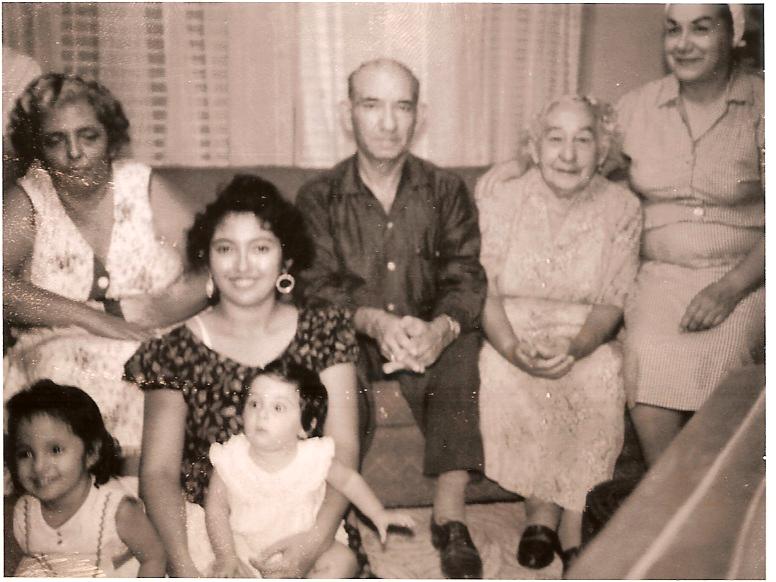
Where were you when JFK was assassinated?
I was in Hanoi Germany, playing bingo… We were at the NCO club, I was at the NCO club, I used to go to the bingo by myself and I was at the bingo when all of a sudden they stopped everything and announced that President John f Kennedy had been shot, and then a few minutes later they said that he was, that he had been killed. And they closed up everything and we all went home. Everybody was crying, it was a very sad moment... Ask me where I was during the Cuba crisis.
Where were you when they had the Cuba Crisis?
I was in the middle of the Atlantic going to Germany in a ship, and we kept getting bulletins every like every four hours of what was happening, while everybody was getting ready for war, that the Russians had their missiles pointed to the united states and the united states had their missiles pointed to Cuba and people were running to get food and stocking up on things and finally they came to a standstill.
What was Germany like?
Germany was completely different. I had never imagined a place like that. First of all I got there the end of October and by the beginning of November it had started snowing, we did not see the ground till the middle of April it snowed and snowed… it would melt some but then it would snow again, and it would melt some and snow again. We were living up on the third floor in base housing they had bars in the windows, I felt like I was in a prison because of course security reasons for the children you know they had bars on all their windows, we were up on the third floor. But I loved the traveling I did while I was in Germany. We took a vacation, we left Hanoi Germany past France into Spain and we stayed in Barcelona and then we came along the French Riviera all the way to Italy. In Italy we visited a couple of the cities; I can't remember Nice I think was one of 'em. And then from Italy we cut across Switzerland and then back into Germany.
What can you tell me about Fort Rucker Alabama?
We were stationed at Fort Rucker Alabama after victor came home from his first tour in Vietnam. Fort Rucker Alabama was a beautiful place. Allot of pine trees allot of woods. In base housing we had our houses and then a few yards from the houses was the woods. The kids had trails the kids had tree houses. And my girls loved that their dad would take 'em riding in the woods on his motorcycle. The nice thing about Fort Rucker is like once a month we would go to Fort Walton beach Florida, we did fishing and swimming, we had a little motel that we stopped at all the time and we could barbeque there. The beach there are so different. You think of our beaches in Corpus Christi where we used to go as children on vacation. My dad would take us to corpus about once a year and we stayed for like fir a week or two weeks and when I saw the beach in Florida it was so different, so beautiful, so blue so green. That's what I remember about Alabama. That's where my girls made their confirmation, in Alabama. Your grandfather used to have a part time job with one of those little food trucks, what do you call 'em, where you have all the sandwiches and sodas and all that and he would go to different barracks to sell, sometimes he would come by the house for something and all the neighborhood kids would be wanting "can we buy, can we buy?"
What was the Flash Flood of 76'?
The Flood of 76? I can tell you about the flood of 55.***
The 76 was a flash, that's why I didn't understand, the flash flood.
What's the difference?
The flash flood is when you're standing one minute on dry ground and the next minute you're underwater. It just sweeps, you have no warning. We were coming, we had visited Maria in Houston, she was going to rice then and we were coming back we went through Dallas and on the outskirts of Dallas we were gonna go down on the highway a bridge with the train on top and up south?… and you couldn't see how much water there was so when we went there we hit already like two feet of water and it killed the car. Your grandpa noticed that the water was coming real fast so he got out of the car, he didn't even open the door he got out through the window and went over the top of the car to the side and took the girls, Lisa had a friend with her, on his shoulder to the higher ground. And he came for Lisa and took her and then he came for me and wanted me to get on his shoulders. And I was like, I'm too heavy your gonna get hurt, and it was like "GET ON MY SHOULDERS!" and I got on his shoulders and he took us. Well we could hear a noise, a real loud noise, at that point the highway patrol came two highway patrol cars came and started shining the flood light, we were standing right next to a drain, a huge drain, and it was like oh my god, you know what if the girls would have stepped right into it, we would have never seen them. So they shined the flood lights on us and we went around the hill all the way and they put us in a patrol car to get out of the rain and we saw our station wagon get completely covered. They said that's why they were there because that always happens in that spot, that always happens, big conciliation. So they took us, we were like refugees, we were all wet and scared and hungry and they took us to the office or station and we sat there till we were able to get a hold of somebody in Lawton Oklahoma to come and pick us up. A few days later Vic came with Uriels dad Pancho in fact I think it was Uriel that came with him, and they pulled the car all the way to Lawton, and everybody was taking bets that he'd never get the car to run again. He took it ALL apart, and we used that car for another five years.
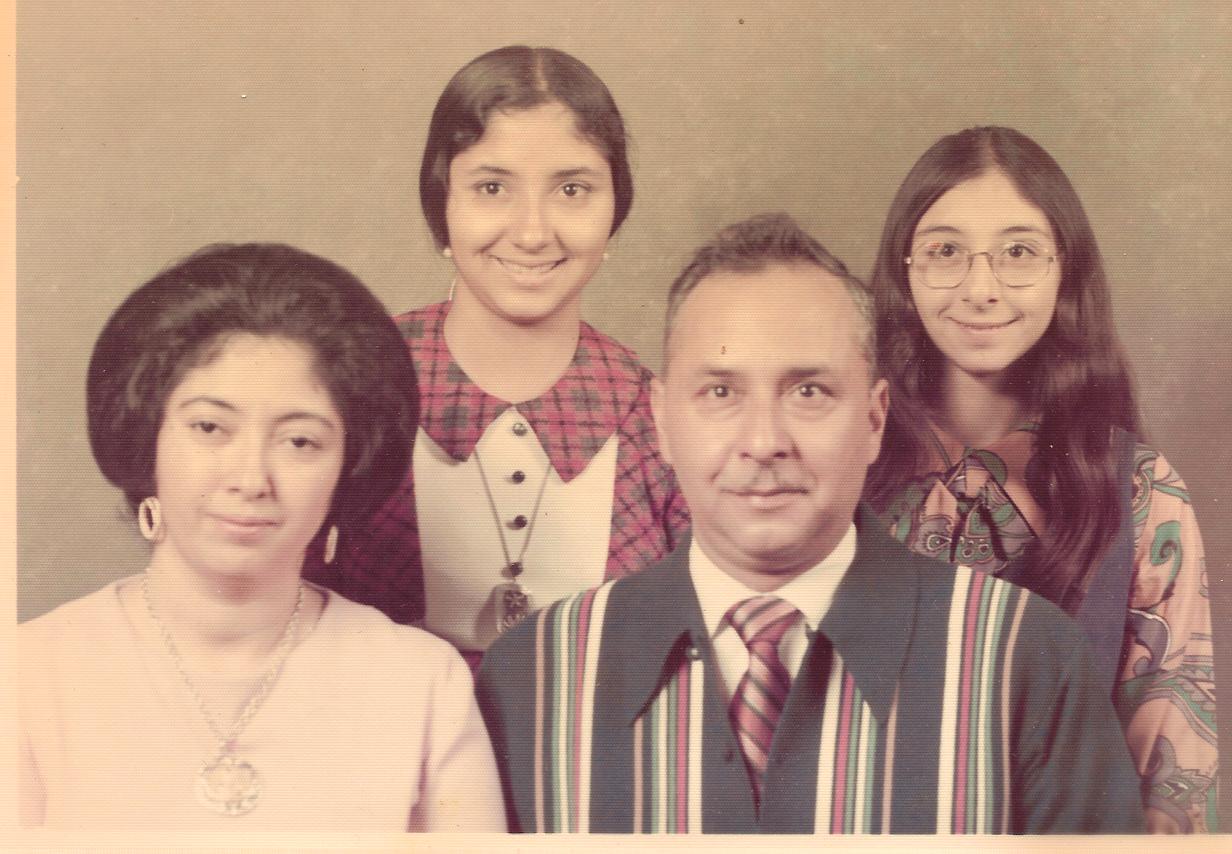
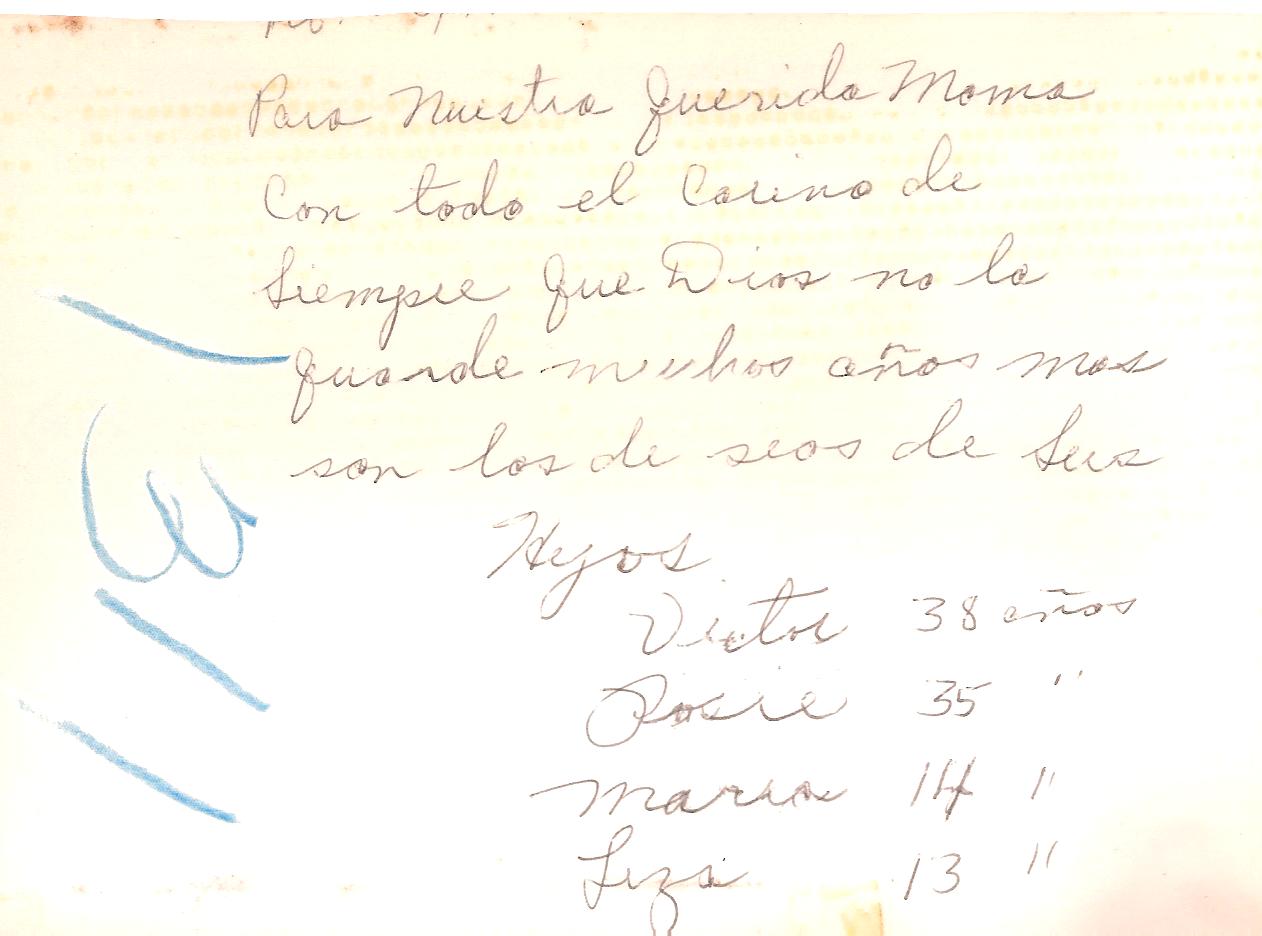
What differences did you notice coming home to San Antonio?
After being away, for… okay I'll tell you how long it was… it was uh, twenty- twenty five years that I had been away from San Antonio. The growth, where we used to have so wide open spaces they were all neighborhoods, house after house after house after house. One of the times that I had been in san Antonio, I had decided to buy a house, and I bought a house and it was all open spaces you know, it was on half an acre of land, but in one of the times I had come back they had already started building an expressway right in front of the house. 90 west, you know where the Cupples road exit is, right in front of there on the access road. There were neighbors on one side and some neighbors facing… but the area in front of us was just open land and when they built it only went to Cupples road, everybody got off at Cupples road and went into Kelly. As time went on they kept adding to it but after we retired and came back to San Antonio it was already a full blown expressway, and everybody that would visit us would always say how can you sleep with the expressway? Because like my brother in law said, he said ah we were so glad when all the traffic died down and we were getting ready to go to sleep when all the 18 wheelers started passing by. But we were so used to it, I didn't think it even bothered me.
...so growth was the biggest change you noticed?
The fact that everybody was moving to the north side. Can I say a little bit of... controversial? Everybody started to move to the north side because the schools in the west side of San Antonio and south side of San Antonio were not as… well preparing the kids. Usually these schools would have the old teachers the very old teachers, they would have the very new teachers, and all the good and established teachers were all in the north side. Allot of people don't want to believe that but that's just the way it is your going to go where you can get better education for your kids. That was one of the things that was different that everybody was moving to the north side, and allot of them because of the schools.
What can you tell me about Tobin's Drafting Company and that family?
The Tobin's were a very, very wealthy family and Mr. Tobin had always been interested in mapping even though he wasn't an engineer, and he had bought allot of the how would you say, patents, there not called patents but its like a patent, of maps that he was the only one who that had the use of them and the information of em and that's how he started his company. The company was at 114 Camp; that had originally been a candy Factory. My dad was working at that candy factory when the depression hit and of course there was a candy factory and behind the candy factory was a six story building, was a pecan factory. Which you know they combine, you know they go together, candy… pecans. So there was a pecan… you don't call it factory, I don't know what you call it… but my dad was working at the candy factory, well my mom started working at the pecans. Because you got to remember all those things were made by hand you know, they would peel the pecans and get the good ones and the hard ones, the pieces. So that's where my dad meet my mother well when they got married in 1927 my mom stopped working and my dad stayed at the candy factory. Well when the depression hit, my dad, of course they closed the place up; my dad started looking for work. That's when he worked at that German Bakery. And he worked at the German bakery until they couldn't afford him anymore then he worked at a gas station. And he never stood in line for handouts he always found a job well I was born 1937 and my dad was working out of the town. He always had a car; my dad always had a little car. He was working out of town and my mother told him it was getting close for her to have the baby that just to quit because she had never had a baby without him there. So he quit the job at the gas station and stayed with my mom. That's why I was born by myself because when the time came the midwife never showed up and my dad didn't know what to do. So there was this little old lady that lived across the street that had like 16 kids and he asked her to come and help her, and the lady was terrified she says oh I've had lots of kids but I've never seen a baby born. So they were both crying and not knowing what to do and there I came into the world. About that time the door knocks and the midwife just came in and cut the cord and cleaned me up and she wanted the rest of her money, my dad you ain't getting.. Well my husbands in the car… I don't care if you have three husbands in your car, I'm not gonna pay you. And that's when he swore that there would never be another midwife delivering any of his kids. But he always had somebody to help my mom after she had a baby, for the six weeks that their supposed to take care of themselves. Well they were so poor he had to do it himself, he was washing the diapers and doing the cleaning and his mother would come and help him out, my grandmother would come and help him out. And he was still doing that when this man was going through the country buying all the machinery of candy factories. In fact I found out that what he was doing was he was buying the machinery here he would disassemble them pack em and send them like to Cuba, send them to south America… they weren't having depressions over there. So when the man came to that building, to buy all the… he wanted to know if there was somebody, the maintenance man there. So they sent him to my dad. And my dad worked with him like for, he was working for 12 dollars a week at the gas station, and this guy hired him for 35 dollars a week. And he worked like for two months you know, and he wanted him to go with him, because my dad was bilingual and in those times not a lot of Mexicanos were bilingual so he got along with my dad real good and he wanted him to go, he was gonna go to Dallas and to Houston, and then to California. My dad said I can't leave my wife, she just had a baby he says well I wish there was something I could do for you. My dad said well I heard this building has already been sold to a Mr. Tobin. Do you think you can talk to him and ask if him if he'll give me a job. And he said oh yes, and my dad stayed at Tobin's and he did the same thing, maintenance. But he worked from 37 to just like about 41 or 42 when we went to work for civil service. Because they wanted to send him to work out, Tobin had a farm, and they wanted to send him to work on the farm and he went, and my mom said nope, leave the job, your not gonna go kill yourself. My dad wasn't used to working out in the open, llego todo era real white llego todo que mao and then Mr. Tobin, he was his first employee, wanted to know where, they called him Shorty, "where was Shorty". And one of the big rednecks there told him "aw, he quit." "Why did he quit." "Because he refused to go work on the farm." "He doesn't have any business working on the farm." My dad used to work with the airplanes; he taught him how to work on the airplanes, Mr. Tobin. And he says "nope, go get him", pero he was never comfortable there was too much static you know. It was racial, in fact up to the point when we were in the military; there was more racism here in San Antonio, than there was in Oklahoma.
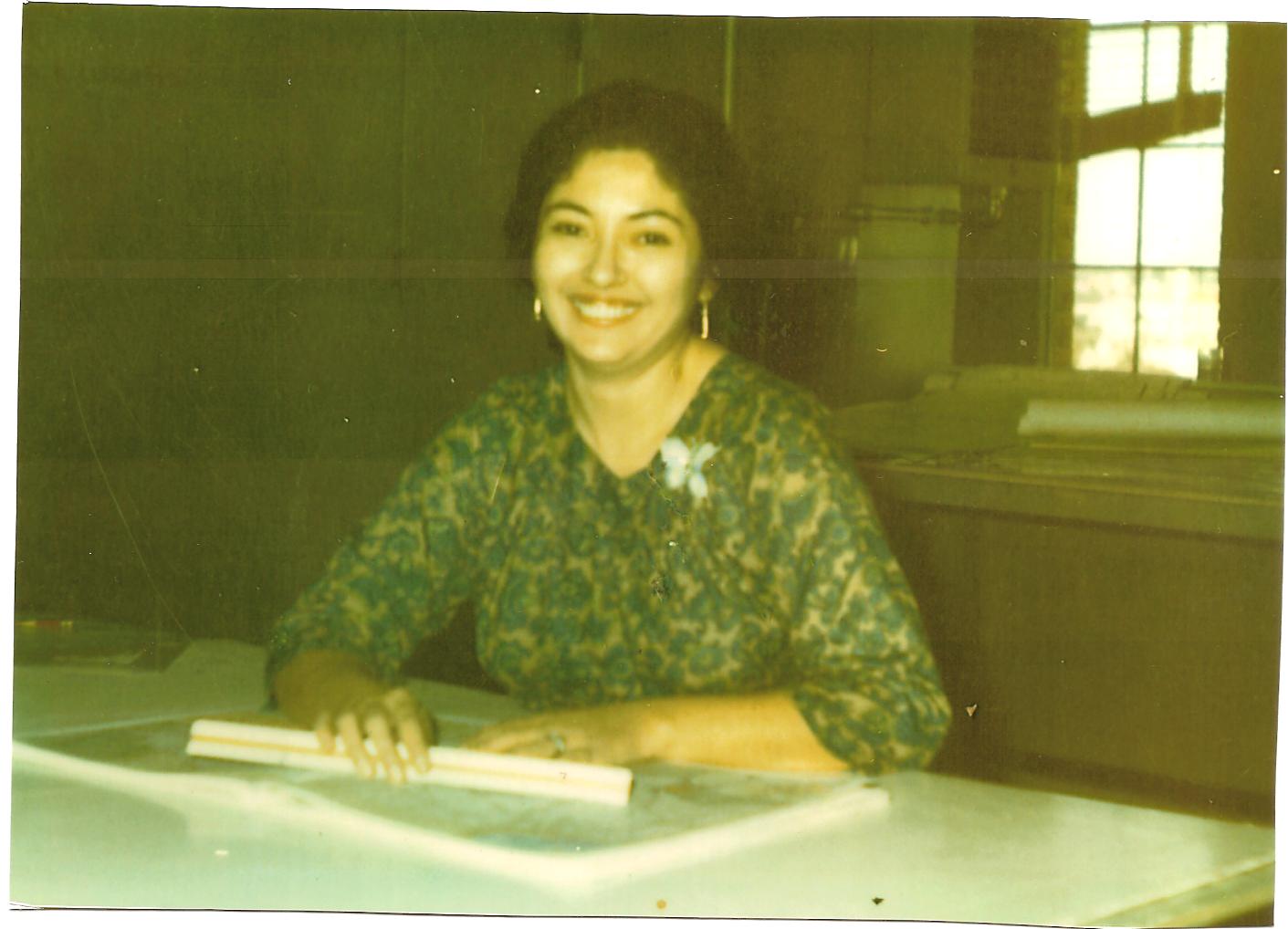
Even being majority Mexican America?
...there was a lot of racism, in jobs in schools. Like when I went to Brack, I just didn't feel comfortable. The fact that it was a college prep school wasn't what I wanted, but I didn't feel comfortable and jobs was the same way. Thank god that Tia Margaret started working at Tobin and we all followed through they would teach you on the job and you would be doing all this stuff. And if you were smart if you understood, we were all good at math and that was the main thing in making maps you have to know your scales you have to know your percentages, you have to do all that. We would get the sheets to make the map and all it had was the grid and from those grids we had to measure and we drew in everything free hand railroads, highways, levies, everything by hand. By the time I left there were these tables that had all these pins, because everything had a different size pin to use for different highways for different roads and all that and it was all done by computer. That arm would move all this and it would be… of course by the time I left there I was editing because the map is only as good as the information that was put into it so we had to correct all the errors that were done and then if the maps didn't fit we had to do all that but I was doing the editing, marking everything that needed to be done. So I really liked that, in fact when I was in junior school I took one semester of mechanical drawing and it was all freehand and I really loved it and I wanted to take it in high school and they didn't accept girls.
Could you distinguish any noticeable climate changes in Texas since you were a little girl?
Yes, I can remember so clearly that as soon as school would start, and school would not start until September, and we would always have the rains. It seemed like as soon as we started school we started with the rains, we'd come home soaked, we'd come home muddy, we'd come home… as time has passed you can't depend say well September is the rainy seas… no, you can't because it might it might not. The winters were cold, I mean really cold. I can remember at least once a year getting out of the house and seeing everything like glass, ice if not once a year at least every two or three years. We haven't seen that happen here in San Antonio within 20 years, we haven't had a snow in San Antonio since 84 or 85. And hot has gone a lot more then when we were… and since there humidity you feel it a lot more. Sometimes I think maybe it's because we're spoiled with air conditioning that we think its so much hotter but the temperatures speak for themselves you know. I've seen too, like I've told you about the little I don't' want to say it I'm gonna say it wrong, the little animals with the horns… horny toads… is that how you say it…you don't see em anywhere, not even at uncle Danny's property which you would think, well here in the city that's not a big deal but you go out to uncle Danny's property and you don't see nothing like that anymore. So I fell like a lot of things have disappeared. Hummingbirds, you'd see em everywhere, especially where people had there flowers planted. Fireflies, at night you would see hundreds of fireflies, you don't see that anymore. And now there talking about bees, that a lot of times our tomato plants don't produce because there are no bees around to pollinate em. So there has been a change. San Antonio has been fortunate, they have never had a huge flood there's areas that flood every time it rains but because they're in low areas but a big flood in San Antonio we've never had it. What I think it is that we're in such a position that the weather comes this way and stops before it gets to San Antonio allot of rain, and then when it comes from the gulf it stops on the other side. But that's something that is recent before we had plenty of rain, that's why San Antonio never had any problems with the aquifer because it was always… but of course the growth of San Antonio depletes all the resources…
Is there anything else you would like to add to this interview?
Aye mija, I could go on and on... so many stories.

